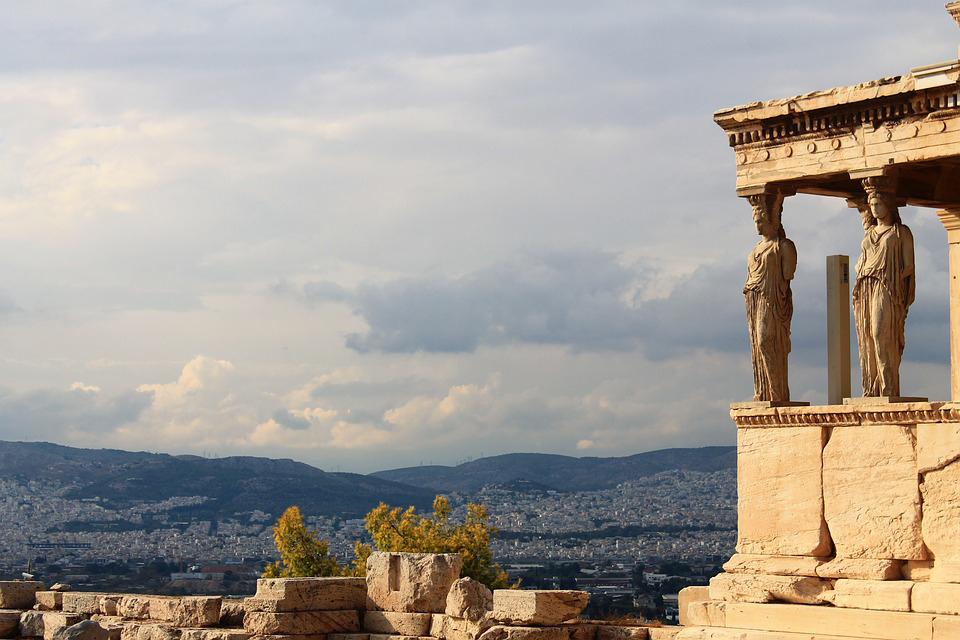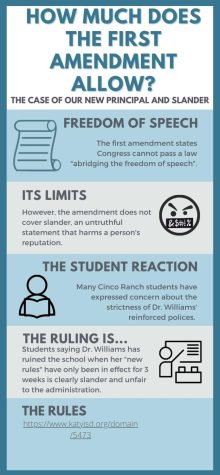U.S. must follow example of ancient Athens, cherish democracy
479 years before the birth of Christ, the people of Athens had a choice to make.
There were two options: liberty, with the possibility of death; or safety, but under the rule of a stranger: the Persian Emperor Xerxes.
The decision was of dire importance. Nothing is more frightening than the death of individuals, but without liberty, the death of a society eventually occurs. The city-state faced quite a dilemma.
The choice was not left up to a king or a queen, nor a priest or a governor. It was not made by a council, and it was not made by a church.
It was made by the people.
Democracy, as limited as it was in ancient Athens, would change the world forever. It wouldn’t happen overnight. Throughout the world, democracy, with all its significance, would rise to new heights and crumble into crude fragments. It would wait in silence for a revival, taking on many forms, and often failing. Today, our sacred system, a system we consider to be the foundation of freedom and fairness, is still under threat. History repeats itself; the role of the common, humble human remains in danger.
Despite the massive importance of free and fair elections, voting rights in the United States of America are in serious danger. This was made clear when, in January of 2017, the Economist Intelligence Unit demoted the United States of America to a flawed democracy. It’s heartbreaking, but ultimately not shocking.
Problems with a U.S. citizen’s ability to vote seem to stem from two main areas. The first is voter ID legislation. According to the American Civil Liberties Union, 11 percent of U.S. citizens do not have an ID, and the requirement of an ID reduces turnout. Furthermore, minority groups like African Americans are far less likely to have IDs, and their turnout is reduced disproportionately.
While a fair voting system is important, the only crime that Voter ID laws prevent is voter impersonation. Since 2000, there were only 31 allegations out of over one billion votes cast. The fact of the matter is that these laws are a solution to an almost nonexistent problem, and pose a threat to the integrity of the American voting system.
The second major area is gerrymandering, a shady political tactic in which district boundaries are drawn specifically to give one political party an unfair advantage. It’s a bipartisan problem- both Democrats and Republicans are guilty. In March of 2015, the Washington Post found that in New York in 2012, Democrats won 66 percent of the popular house vote, but 21 out of 27 seats in the house (three more than 66 percent should have secured in that state). That same year, in Pennsylvania, Democrats won 51 percent of the popular house vote, but only five out of 18 seats. This distortion of the people’s voice is vastly unfair, but not unprecedented; the practice has been around since the founding of our country.
Why is this allowed to happen? Why do lawmakers continue to succeed in silencing the voices of opposition, simply to fulfill their own goals of remaining in office?
The answer can be found in every American who cares nothing of his or her country’s direction.
In 2016, only 58.1 percent of eligible voters in the U.S. showed up at the polls. More than two-fifths of potential voters decided not to participate in a system that, for the ancient Athenians, changed the world forever. Voter apathy on this scale has plagued the country for too long, allowing government officials to gerrymander and suppress their way to the top.
The solution? Vote. And vote often. Not just for president, not just for members of congress; for sheriff, for judge, for school board, and everything else. Furthermore, call out instances in which voting rights are attacked. Peacefully protest instances of ludicrous voter ID laws and gerrymandering. Vote out officials that manipulate the voices of the American populace for their own career.
The people of Athens decided to fight back, and they won. But what’s more significant than the outcome of the fight is that whatever happened, they were the masters of their own fate- a principle taken for granted today. They recognized that unwillingness to participate in government was a dangerous sin, and would ultimately destroy a civilization.
Athenians made the right decisions on that fateful day. If Xerxes had been allowed to rule, democracy might never have existed again.
Standing in line to vote for a few minutes, in my humble opinion, is certainly more desirable.

Samuel Teas, after being drenched in the tidal wave of junior year, and is just now crawling onto the beach that is senior year, is now Co-Editor-In-Chief...



![Tips for Studying Finals [INFOGRAPHIC]](https://crhscountyline.com/wp-content/uploads/2022/12/Studying-for-Finals-475x267.jpg)


